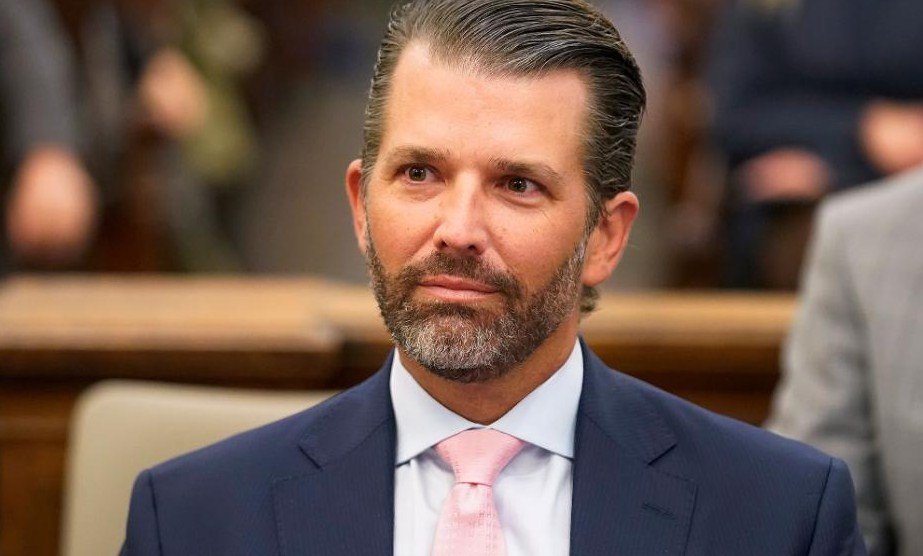The eldest son of the former president testifies in a civil case brought by New York Attorney General
Donald Trump Jr., the eldest son and co-chief of the former president’s business empire, testified in a New York civil fraud trial on Wednesday, denying any involvement in preparing financial documents that exaggerated his father’s net worth. He also cracked jokes and appeared relaxed in the Manhattan court, where he faced questions from state attorneys for about two hours.
The civil trial, which began on Monday, is brought by New York Attorney General Letitia James, a Democrat, who is seeking a fine of $250 million and a ban on the former president, a Republican, doing business in his home state. She accuses him, his children and his company, the Trump Organization, of widespread corporate fraud and inflating their assets to secure favorable loans and tax benefits.
Donald Trump Jr. is the first of the Trump children to give evidence in this case. His siblings, Ivanka and Eric Trump, are also co-defendants and are due to testify in the coming days. The former president himself is expected to take the stand next week.
Donald Trump Jr. claims he was not familiar with accounting principles
The outset of his testimony on Wednesday focused on Generally Accepted Accounting Principles (GAAP) – the standardized practices and guidelines that businesses use to ensure financial records are accurately maintained. Donald Trump Jr. said he was not familiar with GAAP, besides what he could recall from his time studying business at university.
Pressed by state attorney Colleen Faherty on his understanding of the subject, he drew chuckles in court as he responded: “I have no understanding.”
“I leave it to my accountants,” Donald Trump Jr. said.
He also claimed he was not directly involved in the production of financial statements that were sent to lenders and investors, saying he only reviewed them briefly and relied on others to verify their accuracy. He said he did not know who prepared the statements or how they were calculated.
He admitted that some of the statements included inflated values for some of the Trump properties, such as the Trump International Hotel and Tower in Chicago and the Seven Springs estate in New York. However, he said those values were based on “projections” or “potential” rather than actual market prices.
He also denied that he or his father ever misled anyone about their financial situation or their ability to repay loans.
Donald Trump Jr. defends his father and attacks the trial as a “sham”
Donald Trump Jr. also used his testimony to defend his father and attack the trial as a “sham” and a “kangaroo court”. He said the case was politically motivated and aimed at harming his family’s reputation and business interests.
He accused James of being biased against his father and pursuing a “witch hunt” against him since he took office in 2017. He said James had made public statements that showed her hostility towards the former president and his policies.
He also criticized the judge, Arthur Engoron, who has already found Donald Trump liable for inflating his assets and falsifying business records. He said the judge had imposed unfair restrictions on the defense team and had fined Donald Trump a total of $15,000 for twice breaching a gag order over comments made about a court clerk.
He also questioned the credibility of some of the witnesses who have testified against his father, such as Michael Cohen, the former president’s former personal lawyer and fixer, who admitted that he lied while testifying last week.
Donald Trump Jr. said he was confident that his father would prevail in the trial and prove his innocence.
The trial is expected to last for several weeks
The trial is expected to last for several weeks and will feature more witnesses from both sides. The state attorneys will try to prove that Donald Trump and his company engaged in a systematic scheme to defraud lenders, investors, tax authorities and business partners by inflating their assets and concealing their liabilities.
The defense team will try to argue that Donald Trump and his company followed standard business practices and did not intend to deceive anyone. They will also try to cast doubt on the evidence and the motives of the state attorneys and their witnesses.
The outcome of the trial could have significant implications for Donald Trump and his family, as well as their political and business future. If they are found guilty of fraud, they could face hefty fines, damages and restrictions on their activities in New York. They could also face criminal charges from other investigations that are ongoing in New York and elsewhere.

